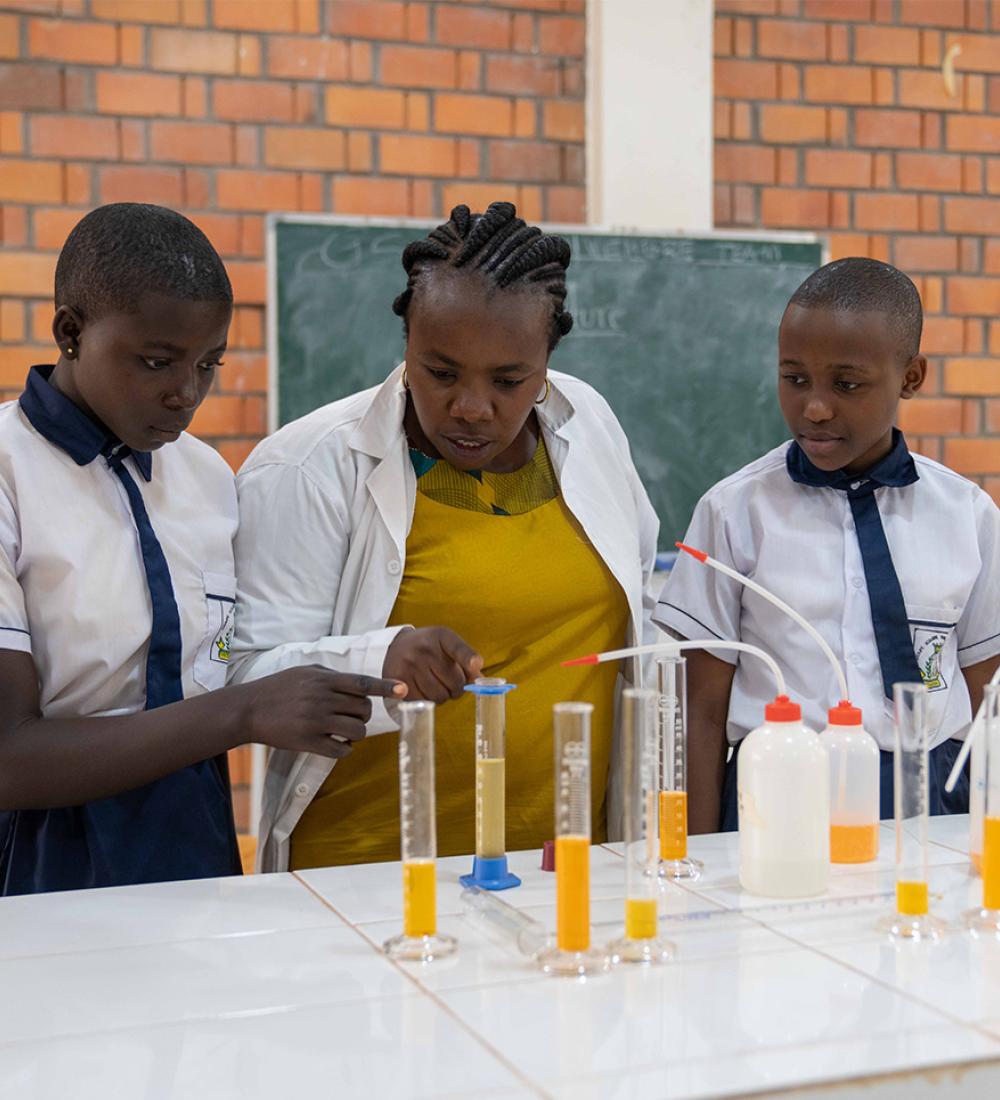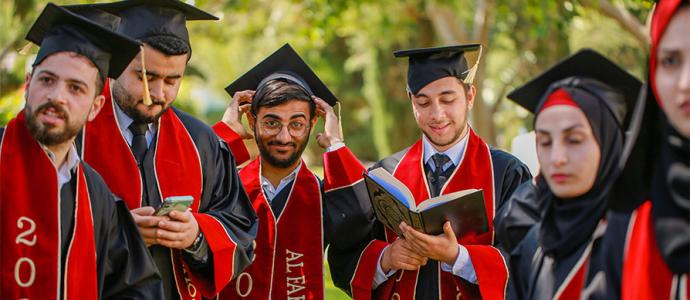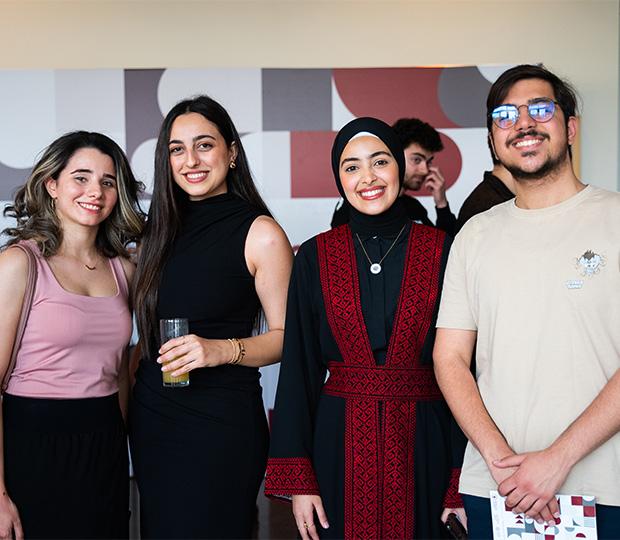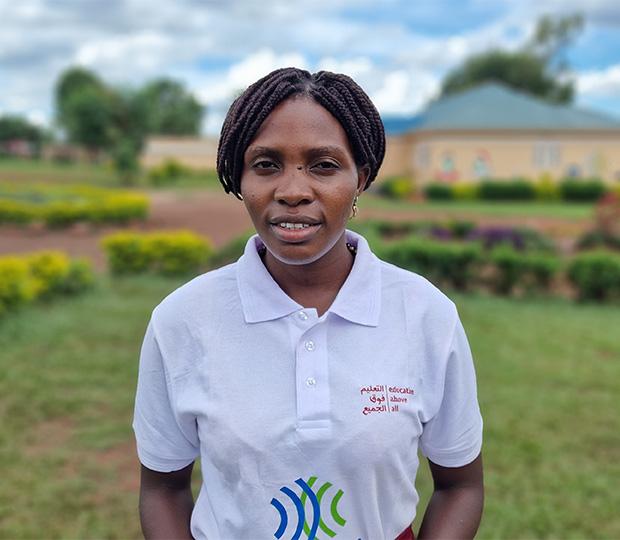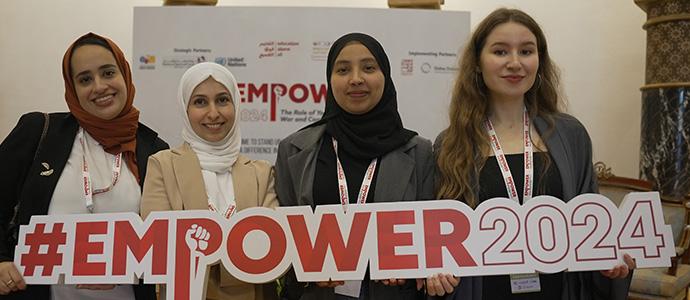Second Phase of Reconstruction and Psychosocial and Disability Support Programs launched
Al Fakhoora has launched its second phase of projects and programs in support of higher education and youth empowerment in Gaza!
Following the success of its flagship scholarship program, which benefits one hundred students annually, Al Fakhoora has activated programs in reconstruction and rehabilitation of educational institutions and facilities, psychosocial and disability support, and vocational training.
In partnership with the Islamic Development Bank, Qatar Red Crescent and Islamic Relief Worldwide, Al Fakhoora signed an agreement that will see the rebuilding and rehabilitation of nine education institutes throughout the Gaza Strip and benefit over 50,000 students.
The collaboration will also launch eight psychosocial support programs geared towards youth, and four disability support programs that include vocational training to allow young people with disabilities an active role in the community. In 2010, Al Fakhoora and the International Islamic Bank established a joint trust fund, whereby IDB matches every dollar contributed by Al Fakhoora to promote and facilitate education in Gaza.
The breadth of activities supported by the trust fund has expanded to revitalize education and the role of all youth in Gaza. The reconstruction program will be monitored and overseen by the Qatar Red Crescent. QRC has been involved in reconstruction work in Gaza since February 2009, in the immediate aftermath of 'Operation Cast Lead', the 22 day assault on Gaza.
The organization has played a leading role in local education over the past years, and has worked on numerous reconstruction and rehabilitation projects in Gaza, including restoring water desalination plants and wells for drinking water and rebuilding and upgrading hospital buildings. “We are very proud to deliver on our pledge in four program areas that support and benefit, not only the student body, but also the surrounding communities in Gaza.
Upon its conception in 2009, Al Fakhoora pledged to move forward on the scholarships, reconstruction of educational institutions, provision of psycho-social support, counseling as well as re-engaging young people with disabilities through vocational training” said Farooq Burney, Director of Al Fakhoora.
“We believe in strategic alliances with dynamic and visionary institutions such as IDB, QRC and Islamic Relief Worldwide, which act on fulfilling this pledge that will inject vitality into a self sufficient cycle of education, inclusion and ultimately employability,” Burney added.
The Universities benefiting from this reconstruction program include Al Azhar University, Islamic University of Gaza, Al Quds Open University, Al Aqsa University, College of Science and Technology- Khan Younis, Palestine Technical College - Deir Al Balah, College of Ability Development- Khan Younis and University College of Applied Sciences.
Some university buildings that were not destroyed, received extensive structural damage, rendering them unsafe. An Al Aqsa University building in Gaza City is on the brink of collapse and is a priority for building works. Damaged facilities have also stalled accreditation from the Ministry of Higher Education for the sports program of the Khan Younis campus.
The reconstruction proposals have allocated space for hobbies and activities centers, lecture halls, fitted and equipped computer and science labs, archive and storage rooms, as well as remodeled libraries. Gaza will also see the rebuilding of much needed toilet blocks and increased water supply to the buildings.
Al Quds University is the only university that offers open education and distance learning. With a student body of 15,000, students have had to sit for exams in tents due to the lack of space and facilities. The university focuses on educating Palestinian ex- prisoners allowing them a second chance at re-engaging in civic society, however more than half of its premises are residential buildings lacking the necessary educational infrastructure and requirements.
The Al Fakhoora reconstruction plan has allocated land for new buildings which will be owned by the university. The College of Ability Development provides services to the surrounding larger community through its library, sports hall and English language courses. Its upgraded sports hall will be used by 400 disabled individuals.
The College of Applied Sciences’ damaged facilities will receive a facelift and its physiotherapy department will also be re-equipped to enhance its training capacities, as per the agreement with QRC to develop services and support for the disabled. QRC will also conduct the first scientific survey and assessment of the needs of the disabled in Gaza. The study, which will be conducted by students in related fields, will provide information on how best to address the needs of the disabled youth and the required training to integrate them effectively into the community.
“We will be able to make educated decisions on the needs and requirements of the disabled, once the study is complete. It will allow us to design proper training schemes and bring along the needed expertise,” said a QRC spokesperson.
As part of the support system provided to the integration of disabled youth, Al Fakhoora will also ensure that physiotherapists, mental health workers, counselors, social workers, ophthalmologists and speech therapists receive up-to-date training and cutting edge practices. Improved methods, facilities and capabilities will benefit hospitals such as Al Ahli’s physiotherapy department to benefit around 500 patients monthly.
Rehab departments, diabetes centers and day clinics will promote preventative practices and improved patient care. In Al Fakhoora’s pledge to integrate the disabled back into the community, children primarily from 8-14 years will benefit from services such as that at the Palestinian Red Crescent Society, where a center with a library, sports corners, library and arts facility will provide psycho-social support to both non-disabled and disabled children.
Other disability support services will include training for hearing screening programs for preschool children, upgrade of services provided to children with cochlear implants, provision of training for supporting services staff and experts in audiology and speech rehabilitation. Similarly, Al Fakhoora joined efforts with the Islamic Relief Worldwide to tailor a program that will empower marginalized youth through vocational training.
The program will select one person from a hundred families to enroll in its program of vocational training in businesses such as technology and equipment maintenance, woodwork, food processing, web and multimedia design. The program will also develop the student managerial skills to allow them to market their skills and create sustainable business.
The program model creates a further incentive for excellence by awarding 50 students a €5,000 grant to create income-generating projects.
“Small business allow economic thrive. We believe that no young person should feel marginalized. Through providing technical and vocational know-how and skilled labour, we hope to allow the young people of Gaza room for self determination” concluded Burney.








